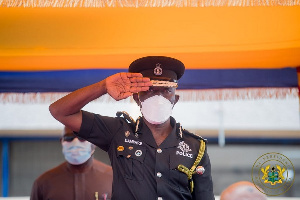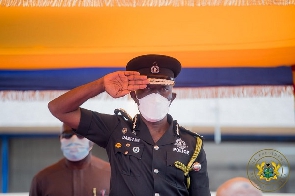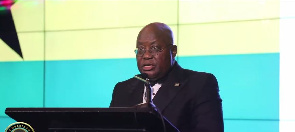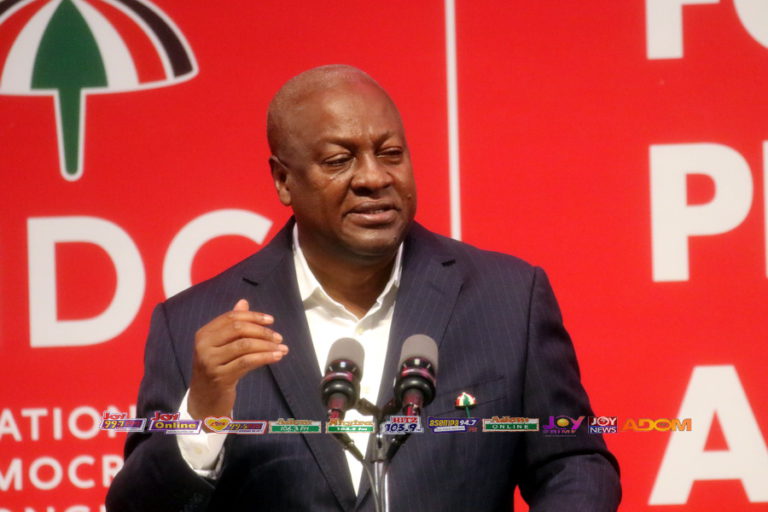Dampare makes massive changes in Police Service

The Inspector General of Police, George Akuffo Dampare, has put in stringent measures to beef up security in the country.
These measures according to the IGP form part of a broad range of efforts by leadership of the service to improve on security and safeguard the safety of all Ghanaians.
Speaking at a public lecture at the Kwame Nkrumah University of Science and Technology (KNUST) on Thursday, August 11, 2022, the Inspector General of Police (IGP), Mr. Dampare indicated that a number of policies and strategies have been developed by the police in that regard.
The measures which include policies that cover hotspot policing, welfare, and professionalism, according to the IGP, will, among other things, strengthen the service, ensure effectiveness and ethical policing as well as reduce crime rate in the country.
The IGP also noted that a practical leadership-driven command and control culture has been put in place at all levels of the service such that all personnel at all levels are clear in their minds about what needs to be done and see to it that appropriate steps are taken to ensure that they are done.
Below are all the new policies introduced by the IGP to change the face of policing and to reduce crime in Ghana:
– All police officers are being sensitized and conscientised about the way they relate with the public.
– All name tags on police uniform are permanent, cannot be removed.
– All Police officers to introduce themselves with names, stations etc. before they interact with any member of the public.
– Response time to emergency or calls reduced to an average of less than 10 minutes.
– Established regional intelligent departments across all regions to ensure safety
– Police hotline to be made active – 7000
– Hotspot policing with special forces or deployment to ensure reduced crime
– All cases that come to the police are investigated, families are supported and seeing the case through.
– Proactive engagement through community policing – using dogs, 2000 motorbikes, horses etc.
– Reactive engagement – Judicial commander, regional, IGP to visit victims and scenes involving major cases and victims are called and spoken to.
– Cultivation of informants across to provide information, when it is processed, informants are paid about 1000 or 5000.
– To allow every police officer to go for United Nations Peacekeeping to encourage international exposure and give equal opportunities to everyone.
– Regional welfare directorates established across the country to ensure the welfare of all police officers is covered.
– All indisposed police officers will be visited and measures have been put in to secure their welfare
– Retirement planning policy to help transit into retirement to help make the process stress free
– Established police emergency medical intervention funds to assist police officials who get injured in line of duty get assistance anywhere they are without having to be financially burdened.
– Established police emergency medical intervention funds to assist police officials who get injured in line of duty get assistance anywhere they are without having to be financially burdened.
– Establishment of police medical center for all police officials to access medical care from any police hospital.
– Retirement planning policy to help transit into retirement to help make the process stress free
– Pension processes decentralized to ensure that personnel don’t have to travel to process their pension benefits.
CLICK HERE TO DOWNLOAD PRESS RADIO MOBILE APP

– Measures put in place to ensure that police who die in line of duty are replaced with qualified relatives during recruitment into the police service as a way of pacifying the family.
Source: www.ghanaweb.com






